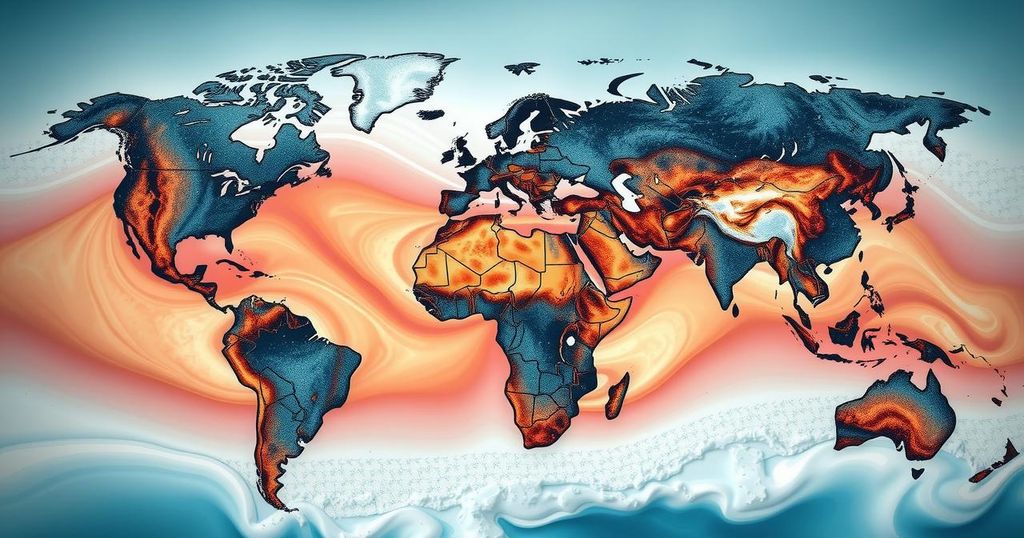Christian Aid’s “Counting the Cost 2024” report identifies the ten most financially devastating climate disasters of 2024, predominantly impacting the United States. Among these, Hurricane Milton stands out with $60 billion in damages. The report also emphasizes that many severe events occurred in poorer nations, where the lack of insurance makes the true extent of damage hard to assess. Experts call for urgent political and financial action to address the growing climate crisis and its disproportionate impact on vulnerable populations.
A recent study titled “Counting the Cost 2024: A Year of Climate Breakdown” published by Christian Aid highlights the ten costliest climate disasters of the year, each incurring damages exceeding $4 billion. The study emphasizes that the real financial impact is likely much greater since the estimates primarily reflect insured losses, while human costs often go uncalculated. Notably, Hurricane Milton, which struck the United States in October, led to damages of $60 billion, resulting in 25 fatalities. Other significant events include Hurricane Helene and devastating floods in various regions, illustrating the pervasive impact of climate change across the globe.
The report also identifies ten additional extreme weather incidents that caused severe destruction but did not reach the financial threshold to be included in the top ten list. These incidents disproportionately affected poorer countries, where insurance coverage is minimal, and data collection is insufficient. Examples include Cyclone Chido in Mayotte, which resulted in over a thousand fatalities, and severe droughts in Colombia that endangered the livelihoods of indigenous communities.
Christian Aid stresses that the repercussions of climate change underline the urgent need for a global response to reduce carbon emissions and expedite the shift towards renewable energy. The realities faced by poorer nations amid escalating climate threats reveal a dire need for financial assistance to build resilience against climate impacts, particularly as they contribute minimally to global greenhouse gas emissions.
The report features key statements from experts such as Emeritus Professor Joanna Haigh from Imperial College London, and CEO Patrick Watt from Christian Aid, who underscore the necessity of immediate action to mitigate climate change effects. They argue that continuing to rely on fossil fuels exacerbates human suffering and climate-related disasters, emphasizing the importance of transitioning to a sustainable energy economy.
Experts from various institutions reiterate that the frequency and severity of extreme weather events reveal the urgent need for investing in adaptation strategies and reducing reliance on fossil fuels. They call for essential policy changes and investments in clean energy technologies as integral to addressing the crisis without further endangering the most vulnerable populations.
The article discusses the alarming consequences of climate change as highlighted in Christian Aid’s report for 2024. It identifies the most financially grievous climate events of the year while bringing attention to those incidents that, while devastating, did not incur sufficient insured losses to be classified among the costliest. The document serves to illustrate how poorer nations disproportionately bear the brunt of such disasters, despite their minimal contributions to climate change. The report aims to advocate for urgent action on emissions reduction and greater financial support for vulnerable populations.
The “Counting the Cost 2024” report by Christian Aid paints a dire picture of the economic and human toll of climate disasters across the globe, particularly emphasizing the plight of impoverished nations. It calls for immediate global action to transition away from fossil fuels and invest in sustainable practices, stressing that enduring climate inaction will lead to increased suffering and destruction. The voices of leading experts highlight the necessity of systematic governmental changes and international cooperation to counteract the consequences of climate change effectively.
Original Source: reliefweb.int






